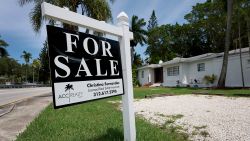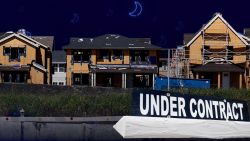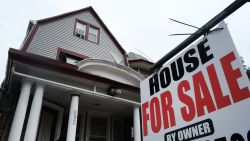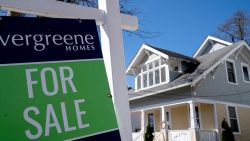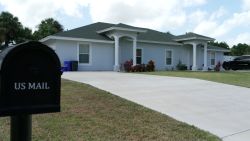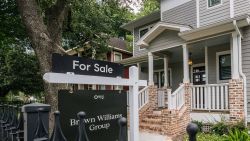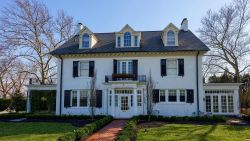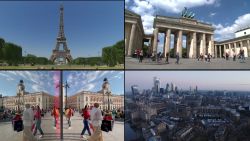In the wake of recent tax reform, affluent homeowners are paying a lot more attention to their property taxes.
Starting with the 2018 tax year, the maximum state and local tax deduction is $10,000. Previously, there was no limit. That meant wealthy homeowners in high-property-tax states — like Illinois, New Jersey, and New York — could take significant deductions on their local tax bills that often amounted to tens of thousands of dollars.
Now large property tax bills are hitting homeowners harder and spurring buyers to think twice before buying in a high-tax neighborhood.
“If I have a buyer that is looking for a million dollar house,” says Lehigh Cohen, a real estate agent who works in the northern suburbs of Chicago. “They will look closely at the tax bill. Is it $20,000? Or is it $30,000? That’s a significant difference for the budget of people moving up. They may nix the houses with $30,000 tax bills.”
Low-tax zip codes in high-tax states
In high property-tax states, like New Jersey and Illinois, house hunters are seeking out zip codes that offer some relief from high property tax bills. Saddle River, New Jersey, for example, is a town of 3,200 people less than an hour northwest of New York City that has no middle or high school, relies on a volunteer fire department and doesn’t have sidewalks and curbs in residential areas to reduce maintenance costs.
“Everyone is cost-conscious,” says Mayor Al Kurpis. “Even the millionaires and billionaires in our town don’t want to pay more than they have to in property taxes.”
As a result, Saddle River has managed to levy some of the lowest municipal taxes in the state — about half as much as any surrounding community, says Kurpis. He added that many of those towns have only one-acre lots (compared with his town’s two-acre lots). “It doesn’t make sense to pay double the taxes for half the property,” he says.
That is helping Saddle River’s housing market to stay strong, even as some other high-end markets begin to soften, he says. “We’ll be the canary in the coal mine, showing that a low municipal tax rate will attract buyers.”
When looking for a new home, buyers evaluate all the typical things — schools, commute, lot size, price — but among similar offerings, increasingly it is the lower taxes that make one town the right fit over another, says Terrie O’Connor, broker and president of her own real estate company serving Bergen County, New Jersey.
Gagan Gupta, co-owner of a home health care company, moved his family to Saddle River from Hackensack, New Jersey, last year. “We thought, why pay high taxes because we’re using private school for our children.”
In addition to the five bedroom, four bath home, their two-acre property includes two ponds and a swimming pool in the backyard. Down the line, Gupta says, the family may add a tennis court. Plus, they liked the local public school so much they transferred their children there and have no more private school tuition bills.
“If we were living in a similar house in a nearby town, we’d be paying three times what we are here in taxes, easily, if not more.” says Gupta. “We wouldn’t be able to capitalize on a lot of that for deductions.”
In the affluent suburbs of Chicago, the tax bills within a single town or county can vary widely depending on how close the property is to the lake and other variables, says Cohen, a broker with the MG Group at Berkshire Hathaway Home Services.
In Lake County, north of Chicago, towns like Highland Park — which is along the lake —and Libertyville — which is inland — there is as much variation within the towns as between them.
“There are homes in Highland Park listed at $1.1 million with a tax bill of $34,000,” says Cohen. “However, the owner of a home in that same town also listed at $1.1 million pays $23,000 in taxes.”
In Libertyville, the tax bills in 2017 for listings between $950,000 and $1 million range from $18,000 to $36,000. “It’s an increasingly popular town, but it isn’t by the lake,” says Cohen. “There are good schools and there’s a downtown. But the tax range is really wide.”
Crossing state lines
The competition is not only among towns or counties. Potential homeowners — particularly high-net-worth professionals who have flexibility with their location — may move out of high-property tax states altogether.
“If they work in big pharma and they are based in the Chicago area, they may say, ‘I’m going to work in the home office in Minneapolis where the taxes aren’t so high,’” says Cohen.
In the suburbs north of New York City, affluent homebuyers are often turned off by taxes in Westchester County, which has some of the highest property taxes in the country. But homes in nearby in Connecticut often come with lower tax bills.
While many towns in Connecticut also have relatively high property taxes, some towns further up the Long Island Sound — like Westport or Fairfield — have lower bills than Westchester and are still a commutable distance from Manhattan.
“In Westchester County — towns like Larchmont, Rye, Mamaroneck — the taxes are crazy high,” says Mary Ellen Gallagher, a real estate agent and partner of Compass Westport Team KMS Partners in Connecticut. “Younger people can’t afford those taxes and are looking [in Connecticut] where you get more house and pay less taxes, but you’re further from New York.”
She says for many luxury buyers, taxes don’t always play into their decision to buy a new home, but can be a deterrent for those looking to move up to a larger and pricier home.
“I think it is hurting the luxury market,” says Gallagher. “Because people aren’t trading up.”


